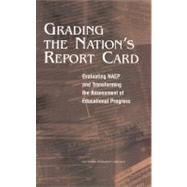
| EXECUTIVE SUMMARY | 1 | (8) | |||
| INTRODUCTION | 9 | (13) | |||
| Changing Sociopolitical Context of NAEP | 9 | (2) | |||
| Committee Charge | 11 | (1) | |||
| History and Current Status of NAEP | 12 | (7) | |||
| Current Context and Demands | 19 | (1) | |||
| Overview of the Report | 20 | (2) | |||
|
22 | (34) | |||
|
22 | (2) | |||
|
24 | (1) | |||
|
25 | (2) | |||
|
27 | (8) | |||
|
35 | (7) | |||
|
42 | (3) | |||
|
45 | (6) | |||
|
51 | (3) | |||
|
54 | (2) | |||
|
56 | (31) | |||
|
56 | (1) | |||
|
57 | (8) | |||
|
65 | (3) | |||
|
68 | (5) | |||
|
73 | (11) | |||
|
84 | (1) | |||
|
84 | (3) | |||
|
87 | (27) | |||
|
87 | (2) | |||
|
89 | (2) | |||
|
91 | (1) | |||
|
92 | (10) | |||
|
102 | (4) | |||
|
106 | (3) | |||
|
109 | (3) | |||
|
112 | (2) | |||
|
114 | (48) | |||
|
115 | (1) | |||
|
116 | (6) | |||
|
122 | (2) | |||
|
124 | (33) | |||
|
157 | (2) | |||
|
159 | (3) | |||
|
162 | (23) | |||
|
162 | (1) | |||
|
163 | (3) | |||
|
166 | (2) | |||
|
168 | (3) | |||
|
171 | (10) | |||
|
181 | (1) | |||
|
182 | (3) | |||
|
185 | (13) | |||
|
186 | (3) | |||
|
189 | (2) | |||
|
191 | (5) | |||
|
196 | (2) | |||
| REFERENCES | 198 | (21) | |||
| APPENDIXES | 219 | (48) | |||
| A Enhancing the Assessment of Reading | 219 | (12) | |||
| B Research About Student Learning as a Basis for Developing Assessment Materials: An Example from Science | 231 | (6) | |||
| C A Sample Family of Items Based on Number Patterns at Grade 4 | 237 | (19) | |||
| D Exploring New Models for Achievement-Level Setting | 256 | (6) | |||
| E Biographical Sketches | 262 | (5) | |||
| INDEX | 267 |
The New copy of this book will include any supplemental materials advertised. Please check the title of the book to determine if it should include any access cards, study guides, lab manuals, CDs, etc.
The Used, Rental and eBook copies of this book are not guaranteed to include any supplemental materials. Typically, only the book itself is included. This is true even if the title states it includes any access cards, study guides, lab manuals, CDs, etc.